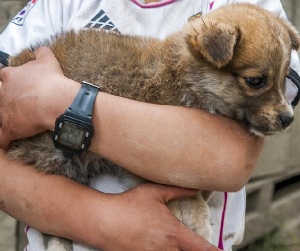 The mission of Animal Health includes preventing the introduction of exotic diseases in the country, monitoring the surveillance system, veterinary diagnosis and the programs for the prevention and control of diseases, which guarantee the control of productions in the agriculture and food sector.
The mission of Animal Health includes preventing the introduction of exotic diseases in the country, monitoring the surveillance system, veterinary diagnosis and the programs for the prevention and control of diseases, which guarantee the control of productions in the agriculture and food sector.
These, among other premises, led to the passing on May 22 of a policy to overhaul the animal health system, reports Dr. Yobani Gutiérrez Ravelo, director of Animal Health at the Ministry of Agriculture (Minag). The new policy is in line with Guideline 167 of the Economic and Social Policy of the Party and the Revolution for the 2016-2021 period, and it defines nine principles in line with the current context in Cuba and with international standards.
“The first goal is to create a National Center for Animal Health (Cenasa). This organization will be under Minag; it will lead the activities throughout the entire chain of terrestrial and aquatic animals and it will have offices in all the agriculture delegations,” he explains.
Dr. Cristóbal Arredondo Alfonso, deputy director of Animal Health, says that the new policy maintains the assistance service in the business system and the agricultural cooperatives. He ratifies that they will be supported by the institutions and organizations to which these basic enterprise units (UEB) belong to ensure the development of veterinary assistance and of reproduction, and to strengthen the primary healthcare in the network of veterinary consultation offices and clinics.
In order for the animal health to work efficiently, it is important to overhaul the main animal health main laboratories (ULCSA), composed of five animal health laboratories and one of vegetable health. The plan is that all the laboratories, animal and vegetable health and seeds, are grouped under this organization.
One of the decisions approved is the creation of a National Network of Veterinary Drugstores for the retail sale of products used in the veterinary exercise. Gutiérrez Ravelo explains that Labiofam, the business group in charge of the production and commercialization of this kind of medicines, will create this network that will initially reach the provincial administrative centers and then extend to the rest of the municipalities.
Moreover, this policy also sets out that the businesses that produce, process and commercialize food of animal origin are responsible for the quality and safety of their products, with in-house veterinaries present at the points of permanent inspection.
Among the new decisions, Arredondo Alfonso explains, it was ratified the permanence of the Cuban Association of Veterinary Medicine, which had replaced the previous Veterinary Scientific Council. The rules and statutes, goals, scope and purposes, as well as their assets and functions, would go under review to consolidate the management of knowledge.
It was also suggested to include in the annual economic plan the funding for the development of animal health; and the development of Labiofam for the production, import and commercialization of medicines and other veterinary products. Likewise, it will be taken into consideration the resources required by the Stockbreeder, Agricultural and Agroforest Groups and the improvement of the existing study material on agriculture in polytechnic schools and universities.
It is also fundamental to improve the mechanisms for the admission to the schools of Veterinary Medicine, the upgrade of the curricula and the formation of specialists in postgraduate education.
Establishing an accurate monitoring of the real situation of Veterinary Medicine is vital to better meet the demands for the specialty. For that reason, there are plans to create a public registry of veterinary doctors to shed light on the current situation of this profession and to validate the practice of those registered.
In the opinion of Mayra Cruz Legón MSc, director of the Department of Agricultural Policy at MINAG’s Legal Department, the new rules published in the Ordinary Official Gazette No. 11 of this year, implement the complementary provisions of the Decree-Law No. 137 on Veterinary Medicine, issued in 1993 (text in Spanish).
This decree-law never had regulations and thus, the Resolution No. 537 of 2020 was passed by Minag to implement those rules, comprising all the rules approved throughout the years in one legal body, now suited to the national context and the international standards.
Another regulation contained in this set is the Decree No. 20 of 2020, related to the violations in Veterinary Medicine, which were managed through the Decree No. 181 of 1993 until recently and which punished such violations with very low fines. The new legislation establishes fines that range from $500.00 to $ 3,500.00 Cuban pesos to those who violate what is established there. The fines can go up to $ 7,000.00 Cuban pesos if the violation is of a more serious type. It also establishes the seizure of animals, products and the revoke of the veterinary health license.
Dr. José Antonio Hernández Rabelo, director of the Department for Food Quarantine and Safety, says that among the violations established in the document is included the introduction in the country of products of animal origin without having complied with the proper quarantine and in a unfavorable health situation, and the sacrifice of animals for their commercialization without the authorization of the Veterinary Service for the State Health Control, among many others.
Generally speaking, as Dr. Manuel Peláez Reyes, director of the Department of Epizootiology, this regulation is directed to preserve the health of animals and human beings.
Another regulation, Resolution No. 538 of November 13, 2020 of the Ministry of Agriculture, passed the Ethical Code for veterinary doctors, which did not exist until this moment and in which the set the general principles the professional exerting these profession shall abide by in any of the forms of management approved by the State.
(Taken from Granma)